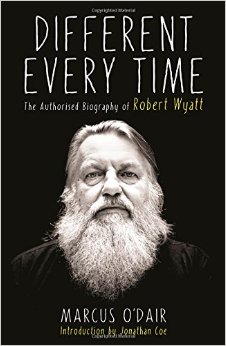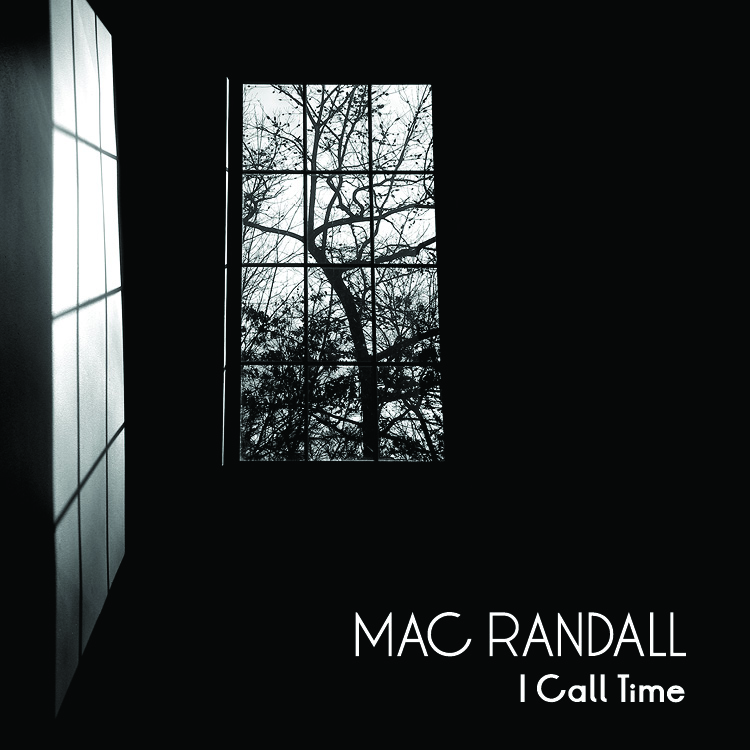A very British Christmas with Wyatt and Davies
With Christmas in the rearview and the all-important Top 10 albums list completed, it’s been my pleasure over the past few days to forget about the latest and just enjoy the greatest. Specifically, I’ve been delving back into the work of two British music paragons, neither of whom I ever need much of an excuse to listen to in the first place.
 1) One of my top Christmas presents this year was Different Every Time, Marcus O’Dair’s authorized biography of Robert Wyatt. I’m only about 75 pages into the book, but it’s already clear that O’Dair has done his homework. Among the things I didn’t previously know: actor Julian Glover is Wyatt’s half-brother; Wyatt attempted suicide at 17 by overdosing on the pills his father George Ellidge was taking to combat MS; when Wyatt was born in 1945, George was married to a woman other than Robert’s mother Honor Wyatt; the woman in question, George’s first wife Mary Burtonwood, was the poet, novelist, and mythologist Robert Graves’ secretary, and probably his mistress too. I also noted with pride that I’m cited in the endnotes at least a couple of times for an interview I conducted with Wyatt and another British maverick, Bill Nelson, in March 1992 for Musician magazine—and that the title of the book’s first section, “The Drummer Biped,” comes from a quote in that interview. The light ego stroke is nice, but beyond that, I’m happy to have been helpful in even a cursory way to the documentation of such a richly deserving subject. I was 19 when I met Wyatt for the Musician assignment. To be invited into his Lincolnshire home and chat with him on all manner of subjects over the course of two days was an experience I’ll always treasure. I’ve rarely come across a friendlier, wittier, smarter or (forgive the hackneyed adjective, but I can’t think of a better one) more soulful person. And just as it should, reading O’Dair’s book has drawn me back into the mournful yet clear-eyed beauty of Wyatt’s music. Right now, it’s the refrain from “Gharbzadegi,” on 1985’s Old Rottenhat: “We get so out of touch/Words take the place of meaning.” Tomorrow, it might be “Sea Song” or “Calyx” or “The Sight of the Wind.” But whatever the song, I have no doubt that wispy voice will be haunting my head for a while.
1) One of my top Christmas presents this year was Different Every Time, Marcus O’Dair’s authorized biography of Robert Wyatt. I’m only about 75 pages into the book, but it’s already clear that O’Dair has done his homework. Among the things I didn’t previously know: actor Julian Glover is Wyatt’s half-brother; Wyatt attempted suicide at 17 by overdosing on the pills his father George Ellidge was taking to combat MS; when Wyatt was born in 1945, George was married to a woman other than Robert’s mother Honor Wyatt; the woman in question, George’s first wife Mary Burtonwood, was the poet, novelist, and mythologist Robert Graves’ secretary, and probably his mistress too. I also noted with pride that I’m cited in the endnotes at least a couple of times for an interview I conducted with Wyatt and another British maverick, Bill Nelson, in March 1992 for Musician magazine—and that the title of the book’s first section, “The Drummer Biped,” comes from a quote in that interview. The light ego stroke is nice, but beyond that, I’m happy to have been helpful in even a cursory way to the documentation of such a richly deserving subject. I was 19 when I met Wyatt for the Musician assignment. To be invited into his Lincolnshire home and chat with him on all manner of subjects over the course of two days was an experience I’ll always treasure. I’ve rarely come across a friendlier, wittier, smarter or (forgive the hackneyed adjective, but I can’t think of a better one) more soulful person. And just as it should, reading O’Dair’s book has drawn me back into the mournful yet clear-eyed beauty of Wyatt’s music. Right now, it’s the refrain from “Gharbzadegi,” on 1985’s Old Rottenhat: “We get so out of touch/Words take the place of meaning.” Tomorrow, it might be “Sea Song” or “Calyx” or “The Sight of the Wind.” But whatever the song, I have no doubt that wispy voice will be haunting my head for a while.
 2) Last week by chance, I stumbled on a press release for The Kinks: The Anthology 1964-1971, a five-CD set that appeared without much notice just before the holidays. Since I don’t tend to get promo copies of box sets in the mail these days, I was happy to discover that the whole thing was up on Spotify. Having now listened to all 140 tracks, I’ve got to figure that the reason for the lack of fanfare regarding this thoroughly wonderful collection must have something to do with a general case of Kinks archival fatigue. One could argue that they’ve been over-anthologized in recent years, the most comprehensive example being the 2008 six-disc set Picture Book. However, that box encompassed the band’s whole career, whereas this one concentrates on the years that really mattered. Don’t get me wrong, the Kinks made plenty of fine music in the quarter-century of their existence not covered here. But The Anthology adds further fuel to the argument, long made by me, that over a five-year period between 1966 and 1971, Raymond Douglas Davies did not write one bad song. That’s not to say everything he wrote during this time was of equal greatness. “Misty Water,” for example, can’t compare to the hallowed likes of “Waterloo Sunset” or “Shangri-La”—the lyrics are poorly constructed and I’ve never even been sure what the damn thing’s about (bootleg liquor, maybe?)—yet it’s just so irresistibly catchy I don’t care. And so it goes for all the “lesser” titles of this period; each one has some special quality that sets it apart. I’m particularly fond of the songs that gently question our moral assumptions. In “Did You See His Name?” a man commits a petty theft, which becomes the pretext for a sacking and a mass media pile-up that leads to his death. Did the punishment truly fit the crime? “His employer was absolved of blame,” Davies coos. In Randy Newman-esque fashion, “When I Turn Off the Living Room Light” confronts us point blank with an outrageous opening line: “Who cares if you’re Jewish and your breath smells of garlic?” The man singing these words is loathsome, as callous and self-deluded as he is prejudiced. But by song’s end, he has indicted us all on similar counts (“We don’t feel as ugly as we really are when we turn off the living room light”), and we are guilty as charged. None of these songs has ever sounded better than they do here, and the various alternate mixes and edits are revelatory, even for dyed-in-the-wool fans like yours truly. Honestly, I’m still a little stunned by the sustained display of songwriting brilliance that The Anthology offers. I didn’t think the Kinks’ music could have such an effect on me at this late juncture, but I guess that’s what distinguishes the true greats: They get you every time.
2) Last week by chance, I stumbled on a press release for The Kinks: The Anthology 1964-1971, a five-CD set that appeared without much notice just before the holidays. Since I don’t tend to get promo copies of box sets in the mail these days, I was happy to discover that the whole thing was up on Spotify. Having now listened to all 140 tracks, I’ve got to figure that the reason for the lack of fanfare regarding this thoroughly wonderful collection must have something to do with a general case of Kinks archival fatigue. One could argue that they’ve been over-anthologized in recent years, the most comprehensive example being the 2008 six-disc set Picture Book. However, that box encompassed the band’s whole career, whereas this one concentrates on the years that really mattered. Don’t get me wrong, the Kinks made plenty of fine music in the quarter-century of their existence not covered here. But The Anthology adds further fuel to the argument, long made by me, that over a five-year period between 1966 and 1971, Raymond Douglas Davies did not write one bad song. That’s not to say everything he wrote during this time was of equal greatness. “Misty Water,” for example, can’t compare to the hallowed likes of “Waterloo Sunset” or “Shangri-La”—the lyrics are poorly constructed and I’ve never even been sure what the damn thing’s about (bootleg liquor, maybe?)—yet it’s just so irresistibly catchy I don’t care. And so it goes for all the “lesser” titles of this period; each one has some special quality that sets it apart. I’m particularly fond of the songs that gently question our moral assumptions. In “Did You See His Name?” a man commits a petty theft, which becomes the pretext for a sacking and a mass media pile-up that leads to his death. Did the punishment truly fit the crime? “His employer was absolved of blame,” Davies coos. In Randy Newman-esque fashion, “When I Turn Off the Living Room Light” confronts us point blank with an outrageous opening line: “Who cares if you’re Jewish and your breath smells of garlic?” The man singing these words is loathsome, as callous and self-deluded as he is prejudiced. But by song’s end, he has indicted us all on similar counts (“We don’t feel as ugly as we really are when we turn off the living room light”), and we are guilty as charged. None of these songs has ever sounded better than they do here, and the various alternate mixes and edits are revelatory, even for dyed-in-the-wool fans like yours truly. Honestly, I’m still a little stunned by the sustained display of songwriting brilliance that The Anthology offers. I didn’t think the Kinks’ music could have such an effect on me at this late juncture, but I guess that’s what distinguishes the true greats: They get you every time.






